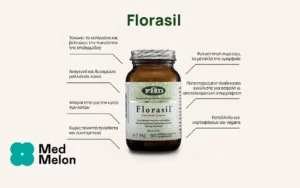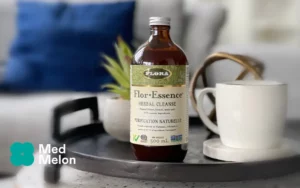Scientific Names of Astragalus Root:
Astragalus membranaceus (Fisch.) Bunge [Fam. Leguminaceae]
Forms:
Astragalus root flour; Astragalus root tea; Astragalus root extracts
Traditional Usage:
– Anorexia
– Appetite Loss
– Breathing Disorders
– Bronchitis
– Cellular Regeneration
– “Chi” Deficiency (Low Energy)
– Cleansing
– Colds and Flu
– Convalescence
– Debility
– Detoxifying
– Diabetes
– Fatigue
– Gastrointestinal Disorders
– Heart Health Maintenance
– Herpes Simplex Infection
– Immune Deficiency
– Immunity Strengthening
– Infections
– Kidney Health Maintenance
– Liver Health Maintenance
– Poultice
– Respiratory Disorders
– Tonic
– Ulcers
– Weakness
Overview:
Astragalus, Astragalus membranaceus (Fisch.) Bunge [Fam. Leguminaceae], also known by the Chinese name, huang qi (literally translated as “yellow energy”), has been used medicinally in China for thousands of years. Astragalus root is considered an energy building or “chi” enhancing herb. It is most well known as an immune stimulant. It is also popularly used today as an experimental drug for improving quality of life and reducing side effects in people suffering from abnormal growths. According to McCaleb, Leigh and Morien in The Encyclopedia of Popular Herbs, astragalus root was used in traditional Chinese medicine (TCM) for treating colds, flu, respiratory disorders, fatigue, poor digestion, lack of appetite, diabetes, stomach ulcers, kidney disease, liver strengthening and as a heart tonic. Scientific studies have documented a strong immune-enhancing effect of the herb. The immunopotentiating effect of the roots has been associated with its polysaccharide fractions. One clinical study with 1,000 people having lowered immunity showed that those taking astragalus either in tablet form or as a nasal spray experienced fewer and less severe colds over a 2-month period. A recent clinical study involving one hundred and six patients with herpes simplex keratitis (HSK) showed significantly improved immune function with Astragalus. The study explored the influence of Astragalus membranaceus versus the drug, ribavirin, on serum cytokines including interleukins and gamma-interferon. Before treatment, levels of specific serum interleukins in HSK patients were significantly higher and those of interleukin-2 and gamma-interferon were significantly lower than those in the healthy control (all P < 0.01). These parameters were significantly improved in the patients of the Astragalus group after treatment, but there was no change in patients of the ribavirin group. Many recent clinical studies on astragalus involve the use of injectable preparations and more research is required to determine if the results are applicable to oral preparations.
Active Ingredients:
Astragalus root contains: Astragalosides (astragalan I-VII); astraisoflavan; the saponins, astramembrannin I and II; astramembranagenin; astrapterocarpan; betaine; calcium; choline; copper; phytoestrogens including the isoflavonoids formononetin and hydroxyformononetin; D-fructose; GABA; D-glucose; iron; isoastragalosides; isoliquiritigenin; linoleic acid; linolenic acid; magnesium; manganese; potassium; beta-sitosterol; sodium; soyasaponin; sucrose; and zinc. Astragalus root is particularly rich in potassium (10,000ppm) and magnesium (1,860ppm). [Duke 1992].
Suggested Amount:
Astragalus root can be eaten as a food or taken as a tea with the recommended dosage corresponding to 8 to 15 grams of dried root daily. In China, the root slices are simmered in boiling water for several hours to make the tea. Tinctures and capsules can also be taken correspondingly. According to McCaleb, Leigh and Morien in The Encyclopedia of Popular Herbs, capsules are recommended with the dosages of 400-500mg, eight or nine times daily and the 1:5 tincture is recommended with a dosage of 15-30 drops, two times daily. Astragalus root is often cooked as a food in China and is commonly added to soups and rice dishes.
Drug Interactions:
Phytoestrogens and other flavonoids have mild blood-thinning properties that are natural and beneficial (blood platelet anti-stickiness effects) and so a reduced dosage of blood-thinning drugs (such as Coumadin [warfarin], heparin, Trental [pentoxifylline], or even aspirin) may be required with the use of Astragalus products. These drugs should only be used in combination with Astragalus extracts under a physician’s supervision.
Contraindications:
According to McCaleb, Leigh and Morien in The Encyclopedia of Popular Herbs, Traditional Chinese Medicine recommends against using astragalus in cases of “deficient yin” or “excessive heat signs”. This may be translated into avoiding astragalus in cases of acute illness with symptoms of fever and thirst.
Side Effects:
None known.
References:
Duke JA. 1992. Handbook of Phytochemical Constituents of GRAS Herbs and Other Economic Plants. CRC Press, Boca Raton, FL, pp. 83.
Mao SP, Cheng KL, Zhou YF. 2004. [Modulatory effect of Astragalus membranaceus on Th1/Th2 cytokine in patients with herpes simplex keratitis]. Zhongguo Zhong Xi Yi Jie He Za Zhi. 2004 Feb; 24(2): 121-3. [Article in Chinese]
McCaleb, R., Leigh, E. and K. Morien 2000. The Encyclopedia of Popular Herbs. Your Complete Guide to the Leading Medicinal Plants. Published by Prima Health 3000 Lava Ridge Court, Roseville California 95661. Pp. 61-67.
Shao BM, Xu W, Dai H, Tu P, Li Z, Gao XM. 2004. A study on the immune receptors for polysaccharides from the roots of Astragalus membranaceus, a Chinese medicinal herb. Biochem Biophys Res Commun. 2004 Aug 6; 320(4): 1103-11.
Sun Y, Yang J. 2004. [Experimental study of the effect of Astragalus membranaceus against herpes simplex virus type 1]. Di Yi Jun Yi Da Xue Xue Bao. 2004 Jan; 24(1): 57-8. [Article in Chinese].




